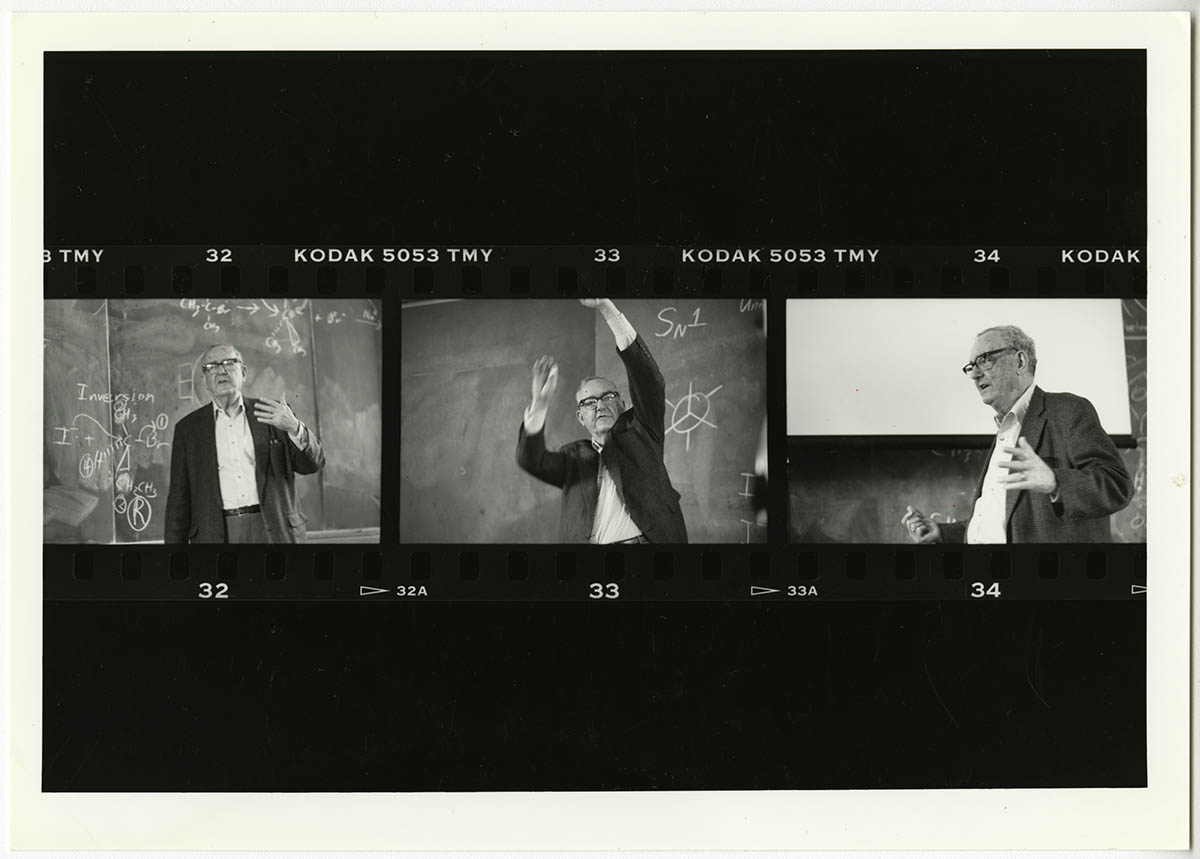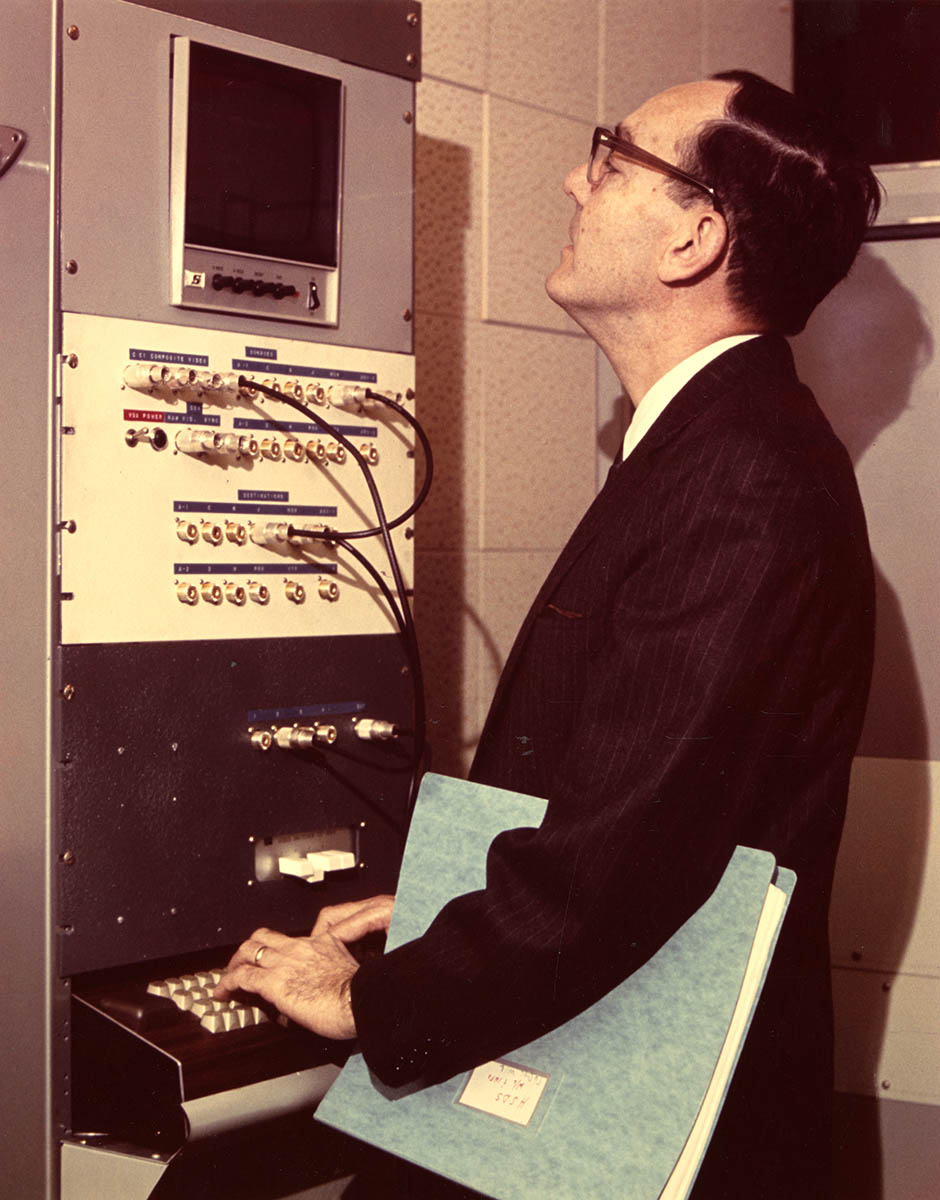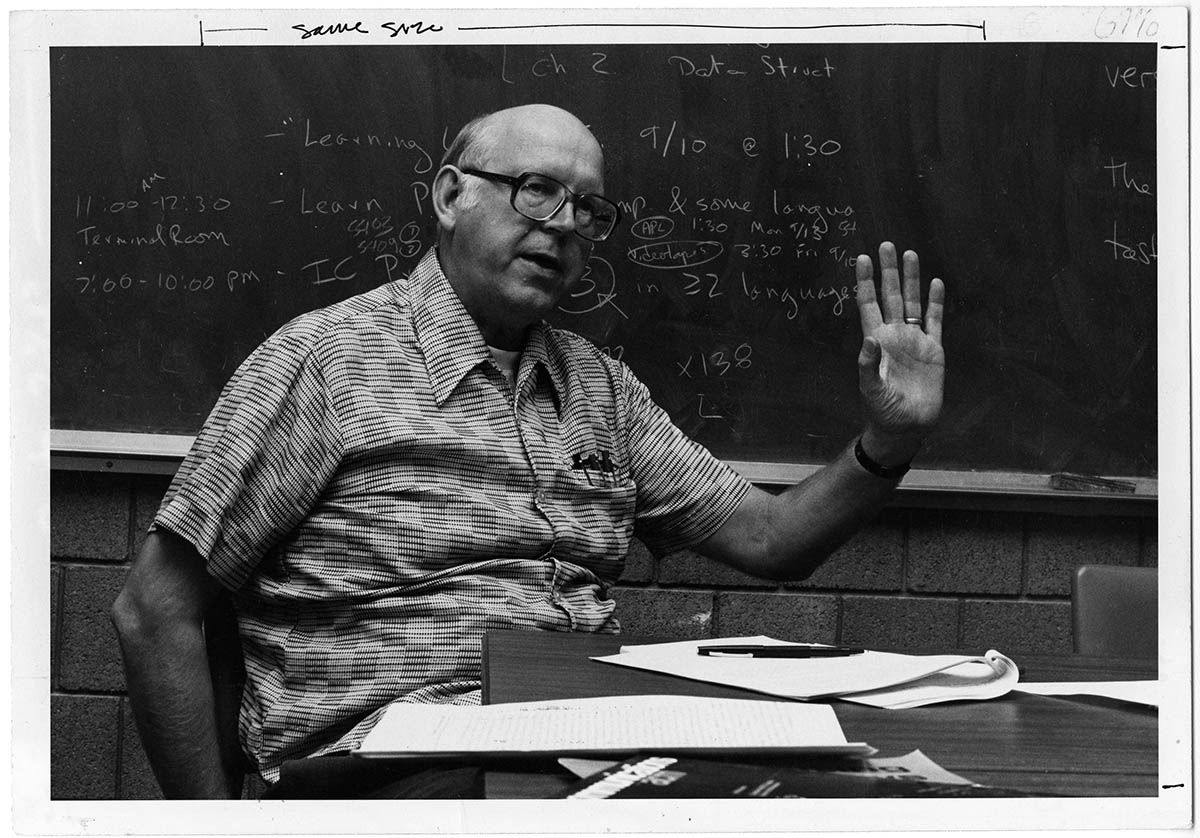The University Libraries’ Role in AI Research and Innovation on Campus

Feature images of Herb Simon from the Carnegie Mellon University Archives
New artificial intelligence (AI) technologies have emerged at record speed over the past year, bringing undeniable changes to the academic landscape. And yet, AI is not new to Carnegie Mellon — or the University Libraries. By holding historic records, integrating the latest tools and strategies into the research lifecycle, and helping the CMU community navigate developments in the field, the Libraries has an important role in preserving the rich past and pursuing the future potential of AI.
“Carnegie Mellon has been on the frontier of AI research and innovation from the very beginning, and great minds across the university are poised to define and accelerate the future of the field,” said Helen and Henry Posner, Jr. Dean of the University Libraries Keith Webster. “The Libraries is in a unique position to both reflect on the rich history of machine learning on campus, and work with researchers to continue to push boundaries moving forward.”
Celebrating History
The Libraries stewards significant material documenting the history of AI on campus, and has worked to make it accessible to researchers and the entire CMU community. The University Archives is home to more than 100 years of CMU history, including groundbreaking AI research dating back to the earliest days of the field.
 The Archives holds both the Herbert A. Simon Papers and the Allen Newell Collection. These resources contain extensive records of the pioneering work of two of the founding fathers of AI. A portion of this collection has been digitized, and can be found online in the Libraries Digital Collections.
The Archives holds both the Herbert A. Simon Papers and the Allen Newell Collection. These resources contain extensive records of the pioneering work of two of the founding fathers of AI. A portion of this collection has been digitized, and can be found online in the Libraries Digital Collections.
“These are valuable records that contextualize and demystify the field and can help put recent research and developments into perspective,” said Associate Dean for Distinctive Collections Julia Corrin.
A special episode of the Oral History Program’s podcast, Cut Pathways, highlights a number of other key AI researchers in the years since Simon and Newell, including Joseph Newcomer, Tom Mitchell, Manuela Veloso, Pamela McCorduck, and Alex Waibel. The episode explores the potential of the field, and asks them to comment on the many ethical, sociopolitical, and environmental impacts that may arise in the coming years.
The Archives has also preserved much of the subsequent history of AI research on campus through the ambitious Robotics Project. From autonomous robots to self-driving cars, CMU’s robotics collections exhibit key machine learning advancements. Many of these resources can be explored through the new Digital Robotics Archive.

Transforming the Present
While it’s true that AI isn’t new, the generative AI models powered by large datasets like ChatGPT are — and they’re rapidly transforming work and scholarship.
The Libraries’ new offering, Keenious, takes advantage of this transformation. Keenious is a powerful recommender tool that uses search algorithms and AI to analyze text and recommend relevant research articles and topics. It utilizes the more than 200 million publications from OpenAlex to generate its recommendations, and seamlessly integrates with library subscriptions and open access sources to minimize barriers to accessing full-text content.
“It’s not surprising that Keenious uses AI — it’s a trend research tools are heading in, and we anticipate seeing many more in the future,” said Director of Library Services Joelen Pastva. “The Libraries will have a key role in highlighting the different tools that are out there, and helping our researchers find ways to integrate them into the research process.”
Carnegie Mellon is the first university in the United States to implement Keenious, and has also become part of the effort to determine exactly how it’s being used — and the effects that has on the research process. A small Libraries team led by Pastva is part of a case study sponsored by the University of Montana. They’re tasked with looking at the ethical implementation of AI in libraries and other cultural institutions.
“How can AI impact user behavior, like approaches to research or overall information literacy?” Pastva said. “These are the kinds of things we’re interested in.”
Future Innovation
The Libraries sees AI as a key area for growth to support the rapid transformation of scholarship. To keep up AI developments and offer more comprehensive guidance, staff and faculty are continuing to engage in the space.
This year, Engineering Librarian Haoyong Lan was appointed to the International Federation of Library Associations and Institutions Artificial Intelligence Special Interest Group. In this role, he’ll work with other members to develop recommendations for the IFLA Statement on Libraries and AI, and help to build an international platform to increase AI awareness and literacy for library professionals.
“The emergence of generative AI chatbots such as ChatGPT has created ethical issues around scholarly research and publication, which are closely related to information professionals. Since AI applications are around the world, it is great to have an international group of librarians come together to discuss the implications and applications of AI on libraries and how to raise AI awareness for library workers across the globe,” said Lan.
He added, “Academic librarians have been adapting to technological transformations and teaching information literacy for decades, and academic librarians can once again respond to AI challenges by teaching AI literacy and providing AI-related library services. With more and more academic databases being powered by AI, it is important for students to have AI literacy skills around these scholarly information systems so that they can make informed decisions in finding and assessing scholarly sources critically.”
The Libraries has partnered with Ithaca S&R and a select group of other universities on a multi-year research project focused on making generative AI for higher education. The cohort will assess AI applications likely to impact teaching, learning, and research, and explore what institutions will need to best navigate the evolving environment.
The Libraries also worked with Computing Services and the School of Computer Science to bring the Artificial Intelligence (AI) Strategy Workshop to campus. At the workshop, Webster provided opening remarks, diving into the ways AI might change how CMU approaches research and scholarship.
“A modern library has a critical part to play in assessing and navigating this rapidly transforming landscape,” said Webster. “Much as we help researchers across Carnegie Mellon manage, share, and protect data and find opportunities for funding and publication, we can help them access and master tools that leverage algorithms and machine learning as well. And with our experts keeping an eye on the horizon, we can continue to adapt as the field changes, and be ready for exciting new advances in the future.”
by Sarah Bender, Communications Coordinator
